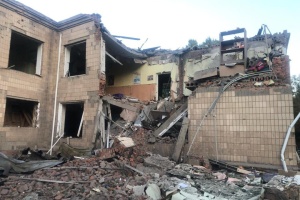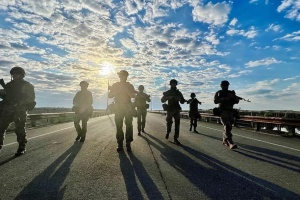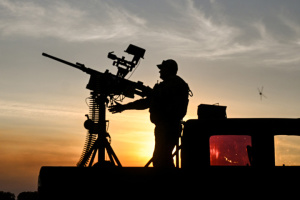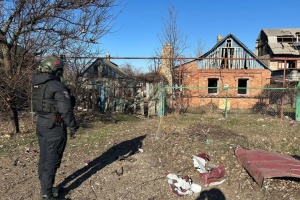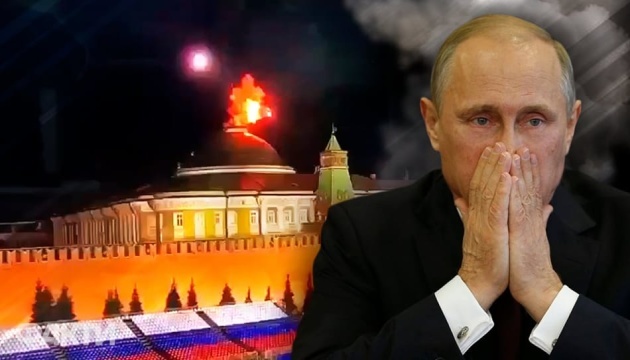
If "attack on Kremlin" provocation, how successful is it?
The video of the drone attack on the Kremlin, which Moscow tried to present on May 3 as an alleged "assassination attempt" by Ukraine against Putin, caused bewilderment and numerous questions around the world. But while Western officials and diplomats are cautiously commenting on the incident, emphasizing that the services need more time to independently assess it, the expert community is actively brainstorming, trying to formulate or refute possible versions. One of them is that it was definitely not the work of Kyiv, which has no reason to set off fireworks over the Kremlin, but rather to hit it so that the towers collapse. But the towers are still in place, and the action culminated in a "neat little clap" right above the tricolor rag that fluttered on the dome.
Speaking of rags and the dome, a small "lyrical digression": a colleague recalled footage of how in December 1991, on the day of Gorbachev's resignation, the red flag of the Union was lowered forever on this "main" flagpole of the empire. Agree, an interesting association, suggestive of certain thoughts...
But let's get back to the topic, namely: who, why, and what benefits did the Kremlin get from the "blow to the Kremlin," and most importantly, what are the future expectations?
Version #1: The Kremlin attacked itself
This is one of the most popular versions today. Why?
"Because there are serious doubts and suspicions. There should be a powerful air defense system around Moscow, and even more so around the Kremlin. Why didn't it work then? Experts suggest that the Kremlin could have been preparing a billet for May 9. Russian propaganda media have been spreading information for almost a week now that Ukrainians are preparing provocations and sabotage in Moscow for May 9. They may have made a video on this topic over the Kremlin at night, but they were supposed to show it on May 9," Volodymyr Fesenko, chairman of the board of the Center for Applied Political Studies "Penta," commented to Ukrinform.
However, residents of the surrounding buildings noticed this and made their own videos, which they began to post on social media. So the Kremlin had to react, albeit with a certain delay, by formulating a version of the "assassination attempt on Putin."
"The most popular version is that this is a pretext for an attack on Kyiv and the government quarter or for another large-scale terrorist act against Ukraine. I am more interested in another version - this was done to accuse Ukraine of intentions to escalate the war, to move it to the territory of Russia, which many Western politicians fear. And this incident should be a powerful argument not to provide Ukraine with long-range weapons. The next version is that the incident was meant to divert attention from the crimes that Russia is committing in Ukraine," the political scientist believes.
In particular, to distract from the tragedies in Kherson and Uman, as well as from the Ukrainian offensive that is expected in the near future.
"Unfortunately, we see this clearly - the Western media discussed the incident over the Kremlin more than the tragedy in Kherson," he added.
The drone attack on the Kremlin can also be used for political propaganda purposes.
"For example, to justify the introduction of martial law and the start of a new wave of mass mobilization. Or, to justify the thesis that "ours" is a new "Patriotic War", that the enemy is attacking Moscow, so everyone needs to unite around Putin and work for the war or directly participate in it," emphasized Volodymyr Fesenko.
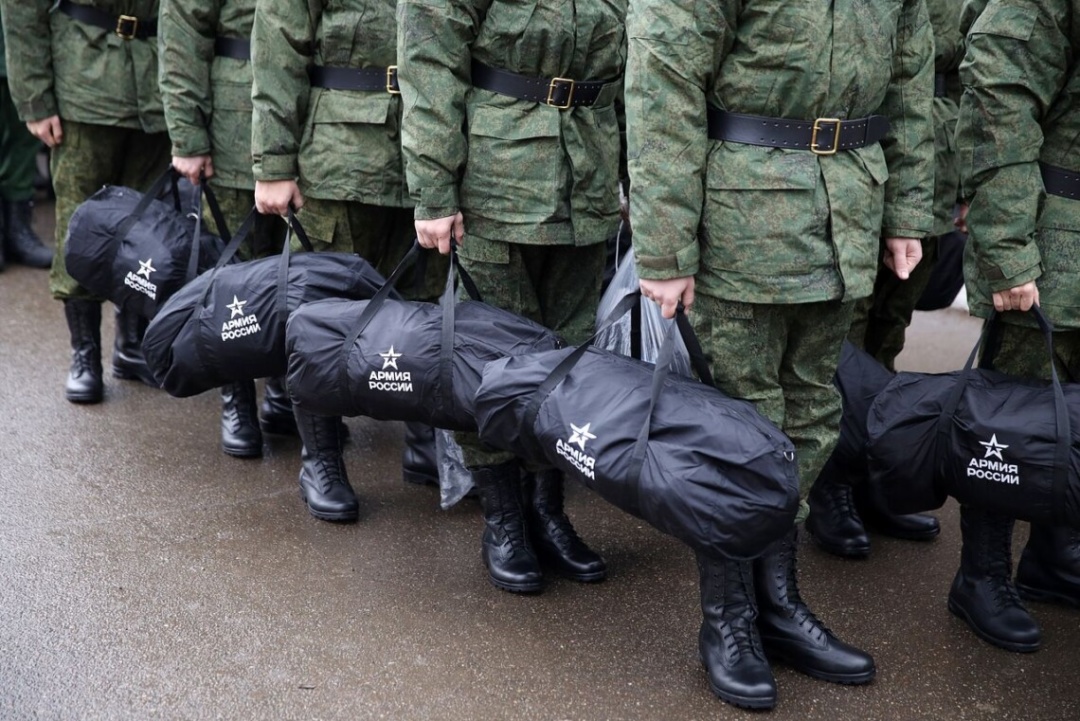
This is diplomat Vadym Triukhan: "To understand who organized and executed this, it is enough to find out who benefited. And here everything is quite clear - it's Putin and Co. They needed to shake up their zombie plebs somehow. After all, there are fewer and fewer people willing to go to Ukraine to die lately."
According to him, the rashists will act in two directions. First, they will do their best to fill the ranks of their army with terrorists, rapists, and bandits. And not necessarily through general or even partial mobilization
"Propaganda has gotten a new lease of life. They are shouting at the top of their lungs: "Ukrainians attacked the shrine, the Kremlin, the Tsar Putin himself." Not all of them, of course, but the most zealous and radicalized Russians will fall for it and run to the military enlistment offices to get their death tickets," says Mr. Triukhan.
Secondly, using the situation as a casus belli, they will attack peaceful Ukrainian towns and villages with whatever they still have in their warehouses.
Why do the Russians want to do this? On the one hand, it is a way to try once again to put pressure on the West to force Ukraine to sit down at the negotiating table. At the same time, it is an attempt to disrupt the Ukrainian counteroffensive.
"The anxiety there is growing every day. In the studios, in the kitchens of ordinary workers, and in the minds of oligarchs," assures Vadym Triukhan.
Oleksandr Musienko, head of the Center for Military and Legal Research, also says that the Kremlin is very much afraid of the upcoming counteroffensive of the Armed Forces of Ukraine. The expert reminds that not so long ago, Levada Center sociologists found out that "citizens" are interested in two things: the deterioration of their financial situation and "concern about the 'military operations'."
He does not rule out that the Russian Federal Security Service (FSS) may prepare a number of similar "terrorist attacks" - provocations to accuse Ukraine.
Mykhailo Honchar, an expert on international energy and security relations and president of the Center for Global Studies "Strategy XXI", also speaks about the FSS's performance. He specifically mentions the Secretary of the Russian Security Council Nikolai Patrushev. Until 2008, Patrushev was the director of the FSS, but as you know, there are no former FSS officers.
"Hit your own to make others afraid - this is Patrushev's style. The bombing of residential buildings in September 1999 in Moscow - blamed on Chechen mujahideen - the Second Chechen War. Self-destruction of three lines of the Nord Stream pipeline - accusations of sabotage by the United States and Norway - preparation of sabotage against critical infrastructure of the EU and NATO. Attack on the Kremlin - accusing Ukraine of terrorism - a pretext to strike at decision-making centers (st. Bankova or government quarter) and nuclear blackmail (ZNPP) in response. The goal is to use the nuclear threat to force Ukraine to abandon the counteroffensive and agree to "peace" by freezing the status quo," says Mr. Honchar.
Version 2. Some third party - the Russian underground, partisans
Viktor Yahun, a reserve major general of the Security Service of Ukraine (SSU), calls it unlikely that the Kremlin attacked itself.
"It is not very comfortable to "lower" itself against the background of what is happening in Russia," assures Mr. Yahun.
He suggests that the attack in Russia could have been carried out by third parties. "Perhaps people who are aware of what they are doing want to somehow show that they are opposing this regime. I don't believe in an organized movement, but I believe that there may still be a certain number of people in Russia who are simply opposed to the regime."
The SSU General immediately emphasizes that these people may not be supporters of Ukraine.
"These may be some people who are not sympathetic to us, but they do not like Putin. Perhaps they want a more brutal policy," Viktor Yahun reflects.
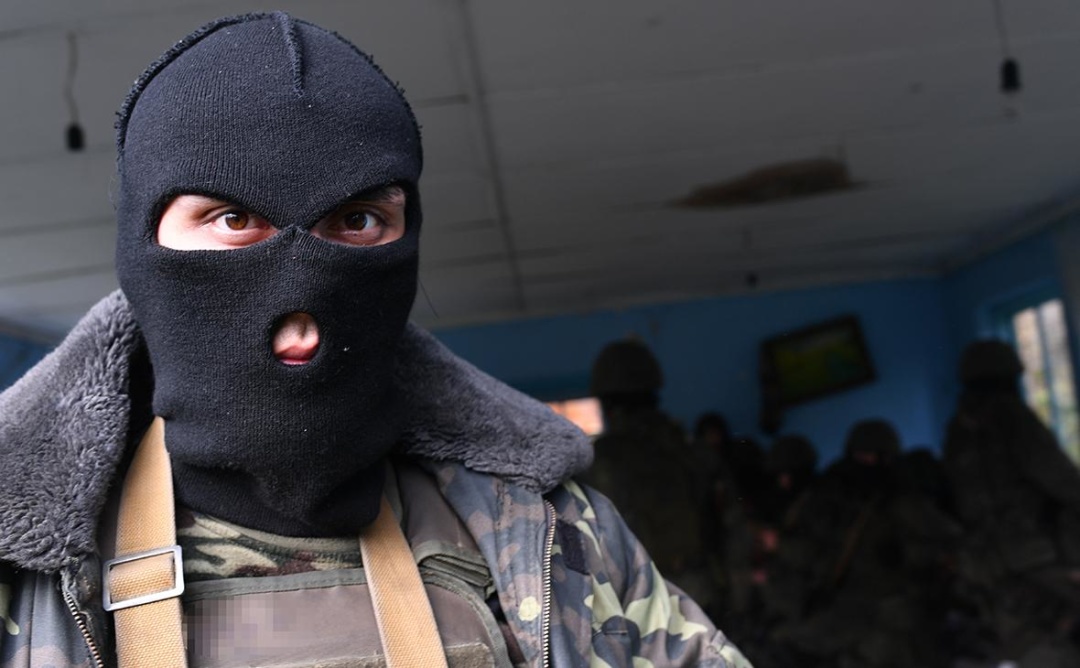
Political analyst Oleh Saakian shares a similar view: "I do not believe that the attack on the Kremlin is a staging. Versions of staging are based on the following possible motives of the Kremlin: first, to increase the mobilization of Russians, and second, to justify escalation (attack on the OP, Zelensky's assassination, use of TNW) against Ukraine."
The expert argues that the Kremlin is too sacred an object for such provocations. Because the obvious conclusion from a strike on it is the regime's weakness.
"They themselves placed "shells" on the roofs of ministries, which in the eyes of the Russians made it logical, probable, and most importantly, expected that Ukraine would strike at their government. So, for ordinary Russians, there is no longer a wow effect from the very fact of a strike on the Kremlin. The wow effect comes from the fact that, despite everything done to protect them and the expectation of the action, it was successful. This is not perceived as something existentially threatening, but rather as the insignificance of their power. Russians do not forgive weakness, so it is not worth playing around with," says Mr. Saakian.
"If the FSS was planning a provocation, they would have attacked people walking in a park or a metro station. After all, it's not the first time they've done this - killing their own for fear. So Mr. Saakian believes that it was not them.
As for the second...
"Throughout the war, the Russians escalated not in response, but when they felt it necessary. There, the society is already overheated on the subject of "retaliation" attacks and other "Dimon's alcohol fantasies." And lately, this has been more of a problem for them, as they have repeatedly artificially extinguished these sentiments because they are not ready and do not want to be left without a choice, in a narrow corridor," the political scientist assures. - "That's why I have little faith in the staging, most likely it is the work of the Russian underground.
Version 3. It's a clan showdown inside the Kremlin
Oleksandr Kovalenko, a military and political observer of the Information Resistance group, pointed out that the racist response "For Moscow" was the attack of 24 kamikaze drones. Not 24 X-101 or Kalibr cruise missiles, but 24 Shahed-136.
"The Shahed-136 had inscriptions "For Moscow!" (see photo below), but why were they not displayed on the X-101 missiles? Because the Russian command did not plan a massive missile strike on Ukraine on May 4. They might not have had the necessary warheads at the airfields on May 4. But if the attack on the Kremlin was planned by the FSS, why were they completely unprepared for the bloody retaliation? After all, a raid on the night of May 4 is a joke to the chickens, not "For Moscow!"
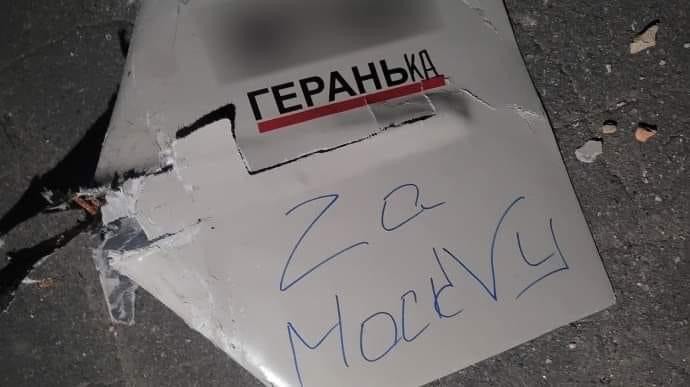
According to him, the answer is simple. The military and political leadership of the Russian Federation was not prepared for what happened on the night of May 3. For this reason, no ammunition and crews were prepared to ensure a "powerful" and "inevitable" mirror response to the "Kyiv regime."
So who is behind this strike?
"For the Financial Times, Ruslan Pukhov, director of the Moscow-based Center for Analysis of Strategies and Technologies, commented on the incident with the attack on the Kremlin, saying that the UAVs that hit the Kremlin could have been launched from the Moscow region. "For those who do not know who Ruslan Pukhov is, let me explain: he is an officer of the Russian General Staff of the Russian General Staff (GRU), who is engaged in propaganda in the expert community and also oversees a network of pro-Russian military 'experts' and 'analysts' around the world," says Mr. Kovalenko.
"It is surprising that a publication like the Financial Times would interview Pukhov, given his background. But despite the fact that Pukhov was talking about some partisans, he voiced what is primarily pulsating within the walls of the structure for which he works, the GRU.
"And the idea that the UAVs were launched from the territory of Russia and it was an action of competitors - the Russian Federation - is pulsating there. Accordingly, it was the "kirzachi" [military] who were completely unprepared for a "mirror" response to the attack on the "sacred" dome, and were only able to "exchange" a good-faith raid. This supports the version of the action organized as part of an interagency confrontation," says the military expert.
If these assumptions are correct, then we can state that the situation in Russia is more tense than ever.
Further developments: what are the expectations?
We will probably know who did it and why only after the end of the Great War. And even then it is not a fact. But what should we expect next?
Oleksandr Kovalenko says that events will be quite predictable: one way or another, Russia will have to give a "response" louder than the humming of the engines of a dozen Iranian "mopeds [Shahed-136]."
"I remind you that they don't have a full-fledged BC [ballistic coefficient] for a massive strike right now. So they are preparing. Perhaps by May 9 or a little earlier. That is, there will be a strike in any case," the military expert warns.
Volodymyr Fesenko believes the same: "Russia is calling for a mirror response, that is, a strike on the government quarter of Kyiv. Perhaps they have already tried to do this, but it failed."
As for the use of tactical nuclear weapons, which is being called for by some bellicose characters in Russia, it is too risky a step.
"This scenario will lead to a powerful escalation, increased isolation of Russia. This will cross out the very possibility of any peace talks. The war will become ruthless and then it will definitely move to the territory of Russia. Therefore, the Russian leadership will act quite cautiously. They also stated that they are considering 'a variety of options for responding to the drone attack.' However, what is important here is not even how Moscow will react, but the fact that Russia is gradually getting used to such 'incidents.' The 'red lines' are sometimes mentioned, but it is recognized that they are almost gone," comments Mr. Fesenko.
What about Ukraine?
According to Oleksandr Kovalenko, Ukraine is doing everything diplomatically correct and right: "We are demonstrating absolute 'coldness', clearly emphasizing that we were not interested in striking the Kremlin, because it would not have brought us any benefit. You may ask, what about a reputational blow, what about demonstrating to the whole world that Russian air defense is a puffery? Isn't this a win for us? I'm sorry, but you can't surprise anyone with something like that."
In the end, in the context of reputational losses, Russia can do just fine without an "attack on the Kremlin." And the world has repeatedly observed the work of Russian air defense, which does not work in them.
Instead, Vadym Triukhan believes that Ukraine should be proactive politically. Our objections alone, although necessary, are not enough.
"Kyiv should initiate an urgent meeting of the UN Security Council on the fact of the racist terrorist attacks, in particular on Uman and Kherson. It is also important to draw the attention of our partners to the fact that the Kremlin has clearly escalated, which requires an appropriate response, including the introduction of additional sanctions and the supply of missile defense/air defense systems to Ukraine," the diplomat summarized.
Myroslav Liskovych, Kyiv

